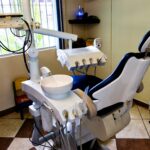Are you aware of the crucial facts about cavities that could significantly impact your dental health? If not, it’s time to dive into the realm of oral wellness and discover the causes, symptoms, prevention techniques, and effective treatment options relating to cavities. As an experienced dental professional, I’m here to guide you through this informative journey, enlightening you with valuable insights and empowering you to prioritize your dental well-being. So, let’s embark on this enlightening exploration together, uncovering the essential facts about cavities that could transform your oral health.

Important Facts About Cavities
Plaque, a sticky film containing bacteria, forms on teeth and releases acid that destroys enamel. This acid attack, if left untreated, can lead to the development of cavities. Cavities are a common dental condition and are the second most prevalent disease worldwide, after the common flu.
Cavities are not only limited to affecting the teeth; they can also have an impact on the overall health of the body. Harmful bacteria from cavities can spread through the bloodstream, leading to potential health complications. It is crucial to address cavities promptly through proper dental care to prevent further damage.
One important fact about cavities is that in the early stages, they may not present any symptoms or pain. This makes regular dental check-ups essential, as the dentist can identify cavities during routine examinations and provide appropriate treatment. As decay progresses, symptoms such as toothache, tooth sensitivity, and pain while eating or drinking may appear.
Cavities are essentially holes in the teeth that develop from tooth decay. While they can occur on any tooth surface, back teeth are more susceptible to cavities due to their anatomy and location. A combination of factors contributes to the development of cavities, including bacteria, frequent snacking, consumption of sugary drinks, and poor oral hygiene habits. Understanding these factors can help individuals take proactive steps in cavity prevention.
It is important to debunk some common myths surrounding cavities. Contrary to popular belief, sugar itself does not directly cause cavities. However, it is the bacteria in the mouth that feed on sugar and produce acid, leading to enamel erosion and cavity formation. Additionally, sugar-free soda may seem like a safe alternative, but it can still contribute to cavity formation as other acids present in these beverages can be harmful to dental health.
Ignoring cavities can have serious consequences. Untreated cavities can cause pain, infections, and difficulties with eating and speaking. It is crucial to detect cavities early, as decay progresses, the color of the affected tooth may change. Early detection provides a higher chance of successful treatment and prevents further damage.
Maintaining proper oral hygiene practices and regular dental cleanings are key to preventing cavities. Brushing your teeth at least twice a day, flossing daily, and using fluoride toothpaste can help remove plaque and strengthen tooth enamel. Regular dental check-ups and professional cleanings can ensure that any potential cavities are identified and treated in a timely manner.
In conclusion, understanding the important facts about cavities is vital for maintaining optimal oral health. By recognizing the causes, symptoms, and prevention techniques, individuals can take control of their dental well-being. Remember, early detection and treatment are crucial in addressing cavities effectively and preventing complications. So, prioritize your oral health and take proactive measures to keep cavities at bay.
“Prevention is better than cure. Take charge of your oral health and make cavity prevention a priority.”
Cavities are a common dental issue that affects many people. If you’re curious to learn some interesting facts about cavities, click here.
Important facts about cavities
Cavities are a common dental problem that can cause a lot of pain and discomfort. However, with the right preventative measures, you can keep your teeth healthy and free from cavities. One of the most effective ways to prevent cavities is by practicing good oral hygiene. This includes brushing your teeth twice a day, flossing regularly, and using fluoride toothpaste. Another important factor in cavity prevention is watching what you eat and drink. Limiting sugary snacks and drinks can significantly reduce your risk of developing cavities.
To learn more about the prevention of cavities and how you can keep your teeth strong and healthy, check out this informative article on prevention of cavities. It provides valuable insights and tips on maintaining proper oral care to avoid the painful and costly consequences of cavities. Don’t miss out on this opportunity to enhance your dental knowledge and protect your smile.
FAQ
Question 1
What causes cavities?
Answer 1
Cavities are primarily caused by plaque, a sticky film containing bacteria, that forms on teeth and releases acid which destroys enamel. Other factors that contribute to cavities include frequent snacking, sugary drinks, and poor oral hygiene.
Question 2
What are the symptoms of cavities?
Answer 2
In the early stages, cavities may not exhibit any symptoms or pain. As decay progresses, common symptoms include toothache, tooth sensitivity, and pain while eating or drinking.
Question 3
Can cavities affect the overall health of the body?
Answer 3
Yes, cavities can affect the whole body when harmful bacteria from tooth decay spread through the bloodstream. It is important to treat cavities to prevent potential infections and health problems.
Question 4
Do cavities heal on their own?
Answer 4
No, dental cavities cannot heal on their own. Proper dental care, including regular dental cleanings and treatment, is necessary to prevent cavities from worsening and causing further complications.
Question 5
How can cavities be prevented?
Answer 5
Proper oral hygiene, such as regular brushing and flossing, is crucial in preventing cavities. It is also important to limit consumption of sugary snacks and drinks, and to visit the dentist for regular check-ups and cleanings.









